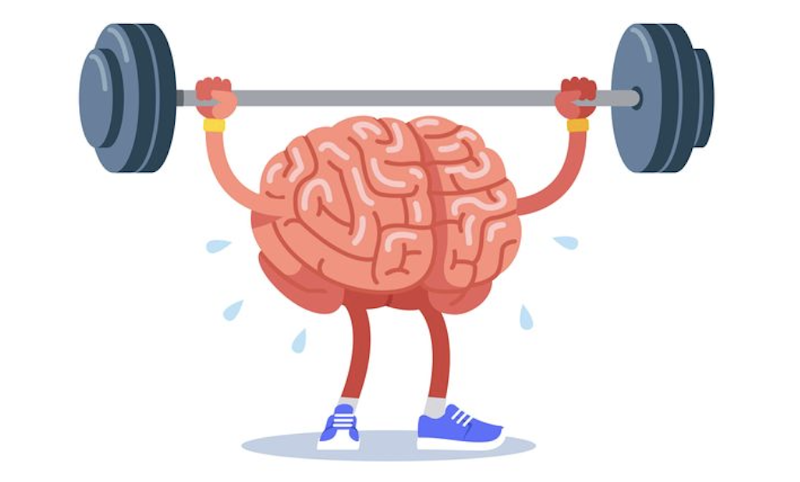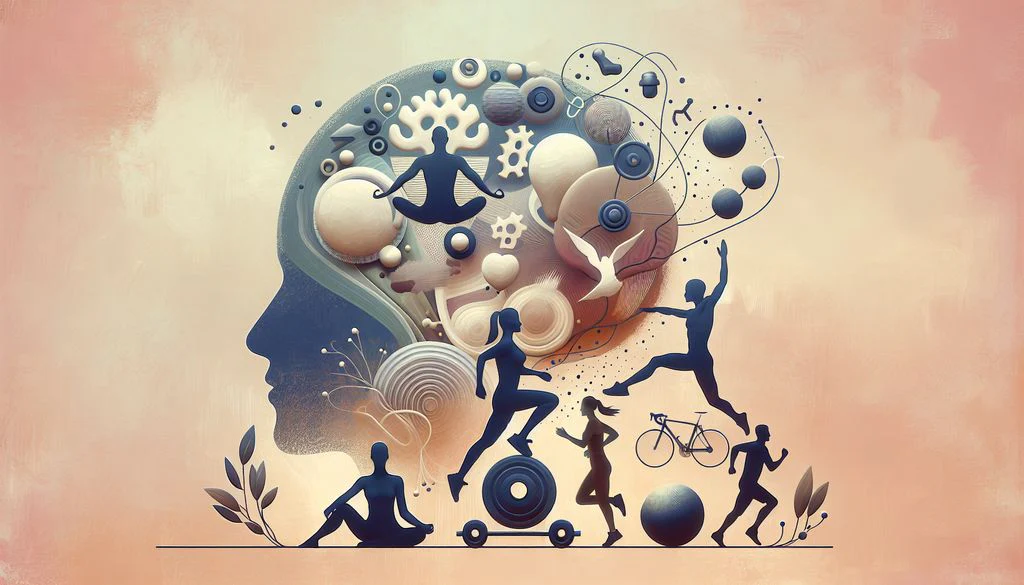Mental Health Benefits of Exercise
We are living in the 21st Century and it has already been proven with numerous research that exercise is vital for a healthy body that is free of diseases.
Exercise helps to reduce the risk of obesity, diabetes, heart disease, cancer, high blood pressure and many other physical ailments. It also helps those who are already suffering from Alzheimer’s, Parkinson’s, stroke and dementia.
In today’s age of chronic lifestyle diseases which stem from unhealthy eating habits and a sedentary lifestyle, exercise helps to lose weight, stay fit and also build muscle.
What are the mental health benefits of exercise?
We are all aware of the physical benefits that exercise gives us. Exercise is a non-negotiable activity that ensures longevity and keeps us free from ailments.
But apart from physical benefits, exercise can also do wonders for our mental health. Reducing depression and lowering anxiety to having a better mood are just some benefits, to name a few.
Let us look at some of the benefits of exercise for our mental health in detail.
Reduces depression and anxiety
Depression and anxiety are two of the most common mental health issues that can affect people of any age group.
When we exercise, our body releases certain ‘feel-good’ hormones and decreases the level of Cortisol, also known as the stress hormone.
Any exercise also serves as a distraction when we are overthinking and thus helps us break the cycle of negative thoughts. It also promotes good sleep, relaxes our nervous system and helps to boost self-esteem.
Improves overall mood
Regular exercise releases endorphins in our body, which act like natural painkillers and release stress from our body, thus improving our mood.
Aerobic activities like walking, running, jogging or cycling boost blood circulation throughout the body and release Serotonin and dopamine, enhancing our mood.
Improves cognitive thinking
As we exercise and blood flows through our brain, it helps to improve mental clarity and capacity to focus. Exercise also promotes neuroplasticity, which enhances problem-solving skills and learning.
Helps with PTSD and Trauma
Regular exercise helps those who have PTSD or trauma of any kind. It helps to release the built-up tension in the body and becomes a coping mechanism for them.
It can help them to become more aware of their physical strength in an empowering way.
Encourage social interaction
Many forms of exercise can be done in groups or as a community. It can be a great way to work out and connect socially. It helps to promote a feeling of belonging or community, which helps to reduce feelings of loneliness.

Does working out release dopamine or Serotonin?
When we work out, our bodies release dopamine and Serotonin, but both provide different benefits.
Dopamine: It is a neurotransmitter that gets released in our brains and is also called the ‘feel-good hormone’. It initiates reward and motivation whenever we do an activity.
When we challenge ourselves with workouts and push ourselves to move more, our brain releases dopamine.
It automatically gives us a sense of accomplishment and motivates us to keep going and be consistent. This is why we feel euphoric after a good workout, whether in the gym or after a 5 km run.
Serotonin: It is also a neurotransmitter, but almost 90% of it is in the intestines and blood platelets. Serotonin helps to relax the body and regulates our sleep, libido, appetite, and even digestion.
Any form of exercise, especially aerobic exercises such as running or cycling, releases Serotonin in the bloodstream. It helps to relax our mind and reduce anxiety.
Dopamine and Serotonin are released after a good workout and help to relax our minds, keeping them calm and focused. It proves the fact that regular exercise is crucial to improve your mood and mental health.

What are the five mental benefits of physical activity?
When we talk about exercise, it is not limited to going to the gym. It means any physical activity that raises your heart rate and makes you move more.
It includes lifting weights, going for a run, swimming, cycling, jogging, badminton or tennis. Any physical activity will act as exercise and help you feel rejuvenated.
Physical activities keep us healthy and promote a healthy mental state, essential in today’s over-stimulating environment. Let us look at some of the mental health benefits that physical activity can give us.
Improvement in mood: After any form of physical activity, our body and mind feel like they have accomplished a day’s goal.
And this feeling itself leads to a better mood and uplifts our entire perspective. Even with low-intensity exercises done 3-4 times a week, we can experience an uplifting mood, ensuring we don’t overthink or feel low.
Reduces stress: Stress is an everyday affair both professionally as well as in our personal lives. Chronic stress can lead to insomnia, loss of appetite, hormonal imbalances, hair fall and even digestive issues.
Physical activities can help the body release pent-up frustration and stress from our body, improving our mental health.
Improves self-esteem: Self-esteem is all about how you feel about yourself and what value you give yourself.
When we perform any physical activity, we push ourselves and do something to take care of ourselves.
This makes us respect ourselves for being consistent, hardworking and disciplined. People who indulge in physical activities often have high self-esteem because they are proud that they are putting in an effort.
Better cognitive health: Physical activities increase the blood flow to the brain, promoting new neuron growth and better mental clarity.
Regular exercise also helps to concentrate better, focus more and helps in getting better clarity for reasoning and problem-solving.
It also reduces the risk of cognitive diseases like Dementia, Alzheimers and Parkinsons as you age.
Improves depression and anxiety: Along with psychological or medical treatment, physical activities can also play a significant role in reducing depression and anxiety.
As the body releases Serotonin and dopamine during and after physical activity, it relaxes our mind and gives us a feeling of accomplishment.
With any physical activity, we also get introduced to like-minded people or communities that act as a positive beacon of light and help us socialize and build relationships.
Exercise has always been linked to a healthy lifestyle free of diseases and ailments. People who exercise regularly are more fit both physically and mentally.
After a good workout, our body releases hormones that relax our minds, give us a sense of achievement, and motivate us to wake up the next day and repeat physical activities.
Exercise is a non-negotiable tool everyone should adopt to heal and improve our physical and mental health.



